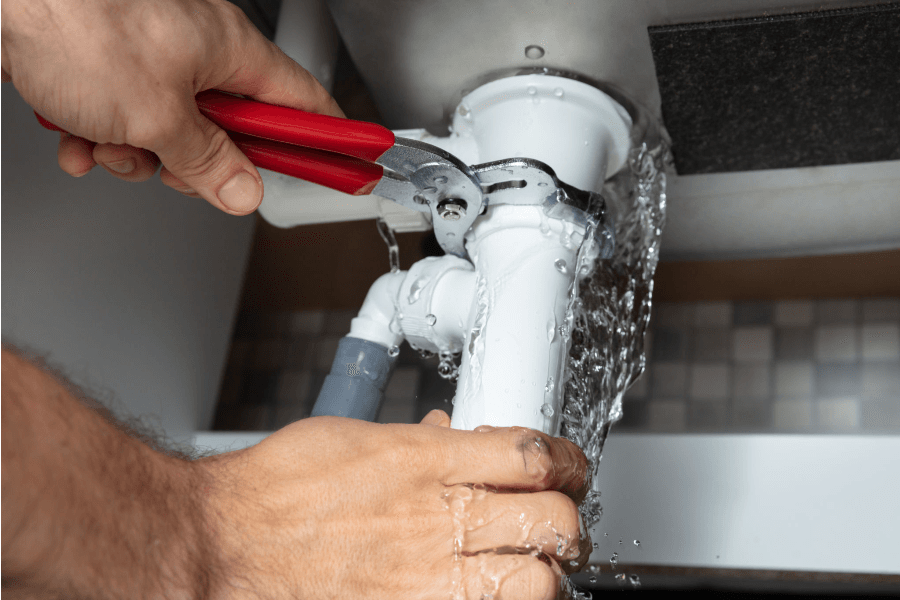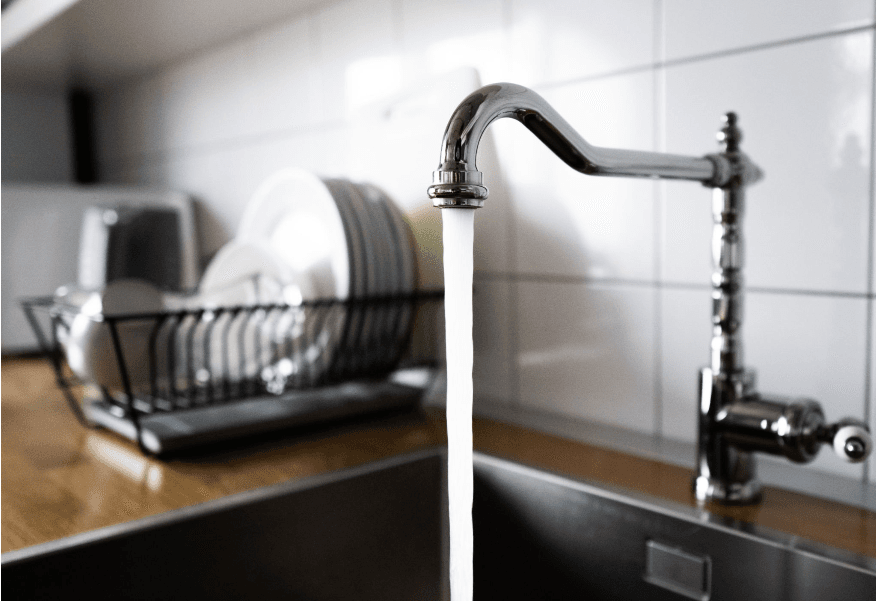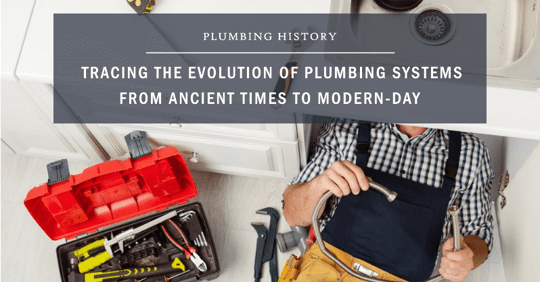Plumbing, often taken for granted in our modern lives, stands as a silent cornerstone of our infrastructure, delivering clean water and sanitation with every turn of the tap. Yet, its story stretches far back into the annals of history, showcasing humanity’s ingenuity and adaptability across the ages.
In this journey through time, we’ll uncover the evolution of plumbing from ancient civilizations to the sophisticated systems of today. From the marvels of ancient aqueducts to the innovations of modern engineering, we’ll explore the pivotal role plumbing has played in shaping human civilization.
Alongside this historical exploration, we’ll highlight Service by Scott, a trusted name in plumbing services serving Woodville, Texas, and beyond for over 30 years. With a commitment to excellence and efficiency, Service by Scott continues to provide reliable solutions for residential and commercial plumbing needs. Join us as we dive into the rich tapestry of plumbing history and discover how Service by Scott remains dedicated to delivering top-notch plumbing solutions in the Tyler County area and beyond.

Ancient Plumbing Systems
Ancient civilizations, despite lacking the technological advancements of the modern era, displayed remarkable ingenuity in developing rudimentary plumbing systems to address their basic needs. Among these early pioneers were the Mesopotamians, who constructed the world’s first known aqueducts around 4000 BCE. These ancient conduits, made of clay and stone, transported water from rivers to cities, providing a vital source of irrigation and drinking water.
In the Nile Valley, the ancient Egyptians also left their mark on plumbing history with the invention of copper pipes and rudimentary indoor plumbing systems as early as 2500 BCE. These early plumbing systems facilitated the construction of elaborate public baths and palaces, showcasing the Egyptians’ mastery of hydraulic engineering.
However, it was the ancient Romans who truly revolutionized plumbing with their extensive network of aqueducts, public baths, and sewage systems. Beginning around 500 BCE, Roman engineers constructed over 400 miles of aqueducts to supply fresh water to cities like Rome, enabling a level of urban development unprecedented in antiquity. The Romans also introduced sophisticated lead pipes and drainage systems, paving the way for the development of indoor plumbing and sanitation practices that would later influence civilizations across Europe and beyond.
Medieval and Renaissance Plumbing
The medieval period marked a significant decline in the sophistication of plumbing systems across much of Europe following the collapse of the Roman Empire. With the loss of centralized governance and engineering expertise, many of the advanced aqueducts and sewage systems fell into disrepair, leading to a regression in sanitation standards. However, plumbing did not vanish entirely during this era, as evidenced by the continued use of wells, latrines, and basic drainage systems in monasteries and castles.
The Renaissance period witnessed a resurgence of interest in plumbing and sanitation, fueled by a revival of learning and technological innovation. In cities like Florence and Venice, wealthy merchants and aristocrats invested in the construction of elaborate private water systems, incorporating principles of hydraulics and engineering inspired by ancient Roman designs. These advancements laid the groundwork for the spread of indoor plumbing to affluent households throughout Europe, with the installation of lead pipes and rudimentary water closets becoming increasingly common.
Despite these advancements, sanitation remained a pressing issue in many urban centers, as population growth outpaced infrastructure development. Nowhere was this more evident than in London, where the rapid expansion of the city during the 17th and 18th centuries led to overcrowding and unsanitary living conditions. The infamous “Great Stink” of 1858, caused by the overwhelming odor of untreated sewage in the River Thames, catalyzed major reforms in public health and sanitation, ultimately paving the way for the modern sewage systems that we rely on today.

Industrial Revolution and Modern Plumbing
The Industrial Revolution heralded a new era of technological innovation and urbanization, fundamentally transforming the landscape of plumbing infrastructure. As cities swelled with migrants seeking employment in factories and mills, the demand for reliable water supply and sanitation systems soared. Engineers responded to this challenge with a wave of groundbreaking inventions, including the advent of cast iron pipes, which offered greater durability and capacity than their predecessors.
During this period, the development of standardized plumbing components and fixtures revolutionized the industry, allowing for mass production and widespread adoption. Innovations such as the flush toilet, patented by Sir John Harington in the late 16th century but popularized by Thomas Crapper in the 19th century, brought newfound convenience and hygiene to households across the globe. Similarly, the introduction of indoor plumbing became increasingly common in urban dwellings, transforming the way people interacted with water in their daily lives.
Amidst these advancements, the importance of implementing plumbing codes and regulations became increasingly apparent. Governments and municipalities began enacting building codes to ensure the safety and efficiency of plumbing systems, establishing standards for pipe materials, installation practices, and sanitation protocols. These regulations laid the foundation for modern plumbing practices, fostering a culture of accountability and professionalism within the industry. Today, adherence to plumbing codes remains paramount in safeguarding public health and ensuring the longevity of plumbing infrastructure in communities worldwide.
Technological Advancements
In the ever-evolving landscape of plumbing, technological innovations have played a pivotal role in enhancing efficiency, sustainability, and convenience. One of the most significant advancements in recent years has been the introduction of plastic pipes, such as PVC (polyvinyl chloride) and CPVC (chlorinated polyvinyl chloride). These lightweight, durable materials offer distinct advantages over traditional metal pipes, including resistance to corrosion, ease of installation, and affordability. As a result, plastic pipes have become a staple in modern plumbing systems, contributing to improved reliability and longevity.
Another notable technological breakthrough in plumbing is the emergence of water-saving innovations designed to promote conservation and reduce environmental impact. Low-flow toilets, faucets, and showerheads are engineered to deliver optimal performance while minimizing water usage, helping households and businesses reduce their water bills and carbon footprint. Additionally, advancements in smart plumbing systems have revolutionized water management, allowing users to monitor and control their water consumption remotely through IoT (Internet of Things) devices. These smart technologies enable proactive leak detection, automatic shut-off valves, and real-time data analytics, empowering consumers to make informed decisions about their water usage and conservation efforts.
As society continues to prioritize sustainability and resource efficiency, the plumbing industry is poised to embrace even more groundbreaking innovations in the years to come. From the development of eco-friendly materials to the integration of artificial intelligence and machine learning in water management systems, the future of plumbing promises to be both innovative and sustainable. By harnessing the power of technology, we can create a world where access to clean water is not only assured but also optimized for the benefit of future generations.

Service by Scott: Providing Modern Plumbing Solutions
At the heart of Tyler County, Texas, stands Service by Scott, a trusted name in the plumbing industry for over three decades. As a family-owned and operated business, Service by Scott has built a reputation for delivering top-notch plumbing solutions with a commitment to excellence and customer satisfaction. Whether it’s a minor repair or a major installation, our team of skilled technicians is dedicated to providing prompt, reliable service tailored to meet the unique needs of each client.
With a comprehensive range of services, Service by Scott is equipped to handle any plumbing challenge, big or small. From detecting and repairing slab leaks to conducting thorough plumbing inspections, our experienced professionals utilize state-of-the-art tools and techniques to ensure the highest quality workmanship. Whether you’re a homeowner, business owner, or industrial facility manager, you can trust Service by Scott to deliver efficient, cost-effective solutions that exceed your expectations.
In addition to our residential and commercial plumbing services, Service by Scott offers 24/7 emergency service, providing peace of mind to our clients when they need it most. Whether it’s a burst pipe in the middle of the night or a clogged sewer line on a holiday weekend, our team is available around the clock to address plumbing emergencies promptly and effectively. With Service by Scott, you can rest assured that your plumbing needs are in capable hands, backed by decades of experience and a dedication to superior service.
Conclusion
From the ancient aqueducts of Mesopotamia to the smart plumbing systems of today, the evolution of plumbing stands as a testament to human ingenuity and innovation. Throughout history, plumbing has played a vital role in shaping civilizations, improving public health, and enhancing quality of life. As we’ve traced this remarkable journey through time, one thing remains clear: the importance of reliable plumbing cannot be overstated.
At Service by Scott, we understand the critical role that plumbing plays in the daily lives of our clients. With over 30 years of experience serving Tyler County and neighboring areas, we’ve witnessed firsthand the transformative power of modern plumbing solutions. From routine maintenance to emergency repairs, our team of skilled technicians is dedicated to providing efficient, reliable service that exceeds expectations.
As we move forward into an increasingly interconnected world, the need for reliable plumbing solutions will only continue to grow. Whether you’re facing a plumbing emergency or planning a major installation, Service by Scott is here to help. today to experience the difference that our expertise and dedication can make for your home or business. Together, let’s ensure that your plumbing system remains in top condition for years to come.
FAQs
How often should I have my plumbing inspected?
It is recommended to have your plumbing system inspected annually to detect any potential issues early on and prevent costly repairs down the line. Additionally, if you notice any signs of leaks, clogs, or other plumbing problems, it’s best to schedule an inspection promptly.
What are some common signs of a potential plumbing problem?
Common signs of plumbing issues include slow drains, foul odors, low water pressure, increased water bills, and visible signs of water damage such as stains or mold growth. If you notice any of these symptoms, it’s important to address them promptly to prevent further damage to your plumbing system.
How can I prevent clogged drains?
To prevent clogged drains, avoid pouring grease, oil, or food scraps down the drain, use drain strainers to catch hair and debris, and avoid flushing anything other than toilet paper down the toilet. Regularly flushing drains with hot water and vinegar can also help prevent buildup and keep drains flowing smoothly.
Are there any eco-friendly plumbing options available?
Yes, there are several eco-friendly plumbing options available, including low-flow toilets, faucets, and showerheads, as well as high-efficiency water heaters and greywater recycling systems. These options can help reduce water usage and lower utility bills while minimizing environmental impact.
What should I do in case of a plumbing emergency?
In case of a plumbing emergency, such as a burst pipe or overflowing toilet, it’s important to turn off the water supply to the affected area immediately to prevent further damage. Then, contact Service by Scott for prompt and professional emergency plumbing service. Our team is available 24/7 to assist you and resolve your plumbing issues quickly and effectively.

